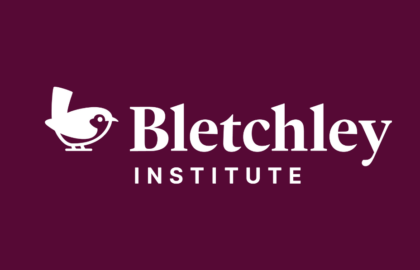Learn.co: A New Type of Online Learning Platform

A note from Flatiron School Co-Founders Adam Enbar and Avi Flombaum, originally posted on October 8, 2015 on the day Learn.co launched. The content has been updated to reflect our learning after nearly a year of growth and iteration on our Online Campus, which is already enabling many alums to change careers and find meaningful […]
A note from Flatiron School Co-Founders Adam Enbar and Avi Flombaum, originally posted on October 8, 2015 on the day Learn.co launched. The content has been updated to reflect our learning after nearly a year of growth and iteration on our Online Campus, which is already enabling many alums to change careers and find meaningful jobs as developers.
When we first started Flatiron School, our goal was to provide students with a tangible return on investment for their education. Since then, we’ve maintained a near-perfect job placement record (Flatiron School is still one of the only schools to release comprehensive, independently-verified jobs reports) and have reoriented our focus to increasing access. We’ve chosen not to expand locations or increase enrollments, but rather to invest in technology and infrastructure that would allow us to grow our impact while maintaining our bar for quality and outcomes.We’ve spent the past four years seeking to understand how people learn effectively, and why we were successful in delivering outcomes while most of online education has failed. Today, we’re excited to give you a closer look at Learn.co, the platform that powers Flatiron School’s online campus and empowers our students to learn together and expect meaningful outcomes. Prior to launching Learn.co publicly, we used it internally at Flatiron School, iterating on the platform over a year, and have lent the technology to partners ranging from Google to New York City to power engineering training. Our Online Campus is now open to the world through our flagship Online Software Engineering Immersive, the first online education program to guarantee students a job upon completion, as well as our ever-growing list of free and paid courses.
Rethinking Online Education
The web is our newest medium for communication, like film before it, and phones before that. When video cameras were first invented, our best idea for how to use them was to stick a camera in a theater and record a play. While it’s obvious now that there are tremendously better ways to leverage that medium, it wasn’t then. The internet has promised to usher in a revolution for education — to reduce costs and increase access. But that potential has not yet been met. We’re still doing what’s obvious. We’re putting cameras in classrooms and expecting magic. We’ve barely scratched the surface of how technology can transform education. Take a look at how we’re changing that with Learn.co:
Real Tools
You can’t learn real skills with fake tools. As much as you can learn in a simulation, you can’t become a competent surgeon without picking up a scalpel or pilot without stepping into an airplane. Yet, online learning platforms today teach people using in-browser, simulated coding tools (often referred to as REPLs) and multiple choice quizzes which, while helpful, can never bring a student to the level of competency required of a professional software engineer.Learn.co requires students to use the same tools and workflows that professional software engineers use on the job. From the start, students work in their terminals using git-based workflows. They’re taught to master the craft using the tools of the trade.
Open Curriculum
The entire Learn.co curriculum is open-sourced on GitHub and updated in real-time by students, faculty, and the larger community. This has two powerful effects. The first is that it ensures every student is going through the most up-to-date curriculum at any given time. The idea that a single education provider can create and own all of the best content seems antiquated in light of the massive scale achieved by online crowd-sourced knowledge tools like Wikipedia, Quora, and Stack Overflow. And yet, online education today remains closed—a collection of gated communities. Flatiron School’s curriculum has evolved dramatically with continual feedback from students, alumni, employers, and our community. By open-sourcing it, we harness the power of shared knowledge possessed by Learners around the world.The second huge benefit of open curriculum is that it provides real evidence of a student’s level of mastery. By hosting all of our content on GitHub, not only can employers see the Flatiron School courses a student completes, they can drill into individual assignments — that is, down the code level — to understand how a student approaches a problem. Flatiron School students graduate with a GitHub profile that incontrovertibly and transparently showcases their work and mastery.
Community
One of our earliest insights at Flatiron School was that learning does not come from content Learning comes from connecting people through content. Years after finishing college, no one remembers the specifics of their textbooks or class lecture slides—they remember their classmates; their study groups; their teachers; the difficult conversations that led to “aha” moments. And yet, for the majority of online education, you face your lessons alone. Community is built into the heart of our online campus. Students interact with instructors and each other using real-time chat and screen-sharing. Questions are ephemeral and tied to individual assignments. There’s no way to describe it other than to experience it first-hand.This provides a lot of obvious benefits over traditional methods, like going down rabbit holes on Google, posting to forums, or waiting a week to speak to a mentor. But the biggest one is this: You are online, but not alone. On Learn.co, you are part of a supportive community that wants to see you succeed. That community will push you forward and pull you up. You will be able to help and be helped. Learning again will feel social, like it should, and you will find yourself not wanting to let your fellow Learners down. You may even find yourself inspired to be a better human being. We are constantly developing new Learn.co features to ensure that you'll never be isolated. Here are just a few of them:
-
Ask a Question: Confused? Our Ask a Question button is always just a click away. Crowdsource real-time support from the entire student community.
-
Learn Chat: Access every student on Learn.co in our chat lobby. Get advice; work through problems together; make friends with fellow students (we see many online alums stay connected after graduating).
-
Study Groups: Seamlessly form dynamic, in-platform study groups with other students to take on tough concepts together.
-
Nearby friends: You’ll see which other students are “nearby” to you in two ways: in the curriculum (so you can learn together) and geographically (many of our online students form in-person study groups and attend local meetups together).
-
Peer code pairing: Want to work closer with a fellow student? You can collaborate on code in real-time.
-
Group Projects: Online students can optionally build their final Portfolio Projects in groups just like our in-person students.
Alumni Stories
Since launching our online campus, we’ve had the opportunity to work with students from around the world, ones who may have never been able to attend our in-person courses in NYC. And thrillingly, we’ve seen these students graduate and go on to get jobs as web developers. You can find a few of their stories below.

Shana Moore: Shana discovered her love for programming only after spending years pursuing a career path she wasn’t passionate about in the telecommunications industry. She feared it was too late for a course correction, but after a few exciting brushes with code, Shana decided to let go of that fear and commit to learning how to program. One of our first online graduates and now a software engineer at Verve Mobile, Shana is proof that it’s never too late to change careers if you’re passionate about learning new skills.

Brett Heenan: Brett is a musician turned programmer—and he has some thoughts on why those skills are similar! Though Brett attended Flatiron School from Berlin via our online campus, by connecting with students working on the same part of the curriculum as him and starting study groups, he never felt isolated from the Flatiron community. He now works at CareerFoundry, building features to improve their students’ experiences.

Tucker Bohman: While working in accounting, Tucker felt the tug of a tech career after he began solving his own software bugs instead of sending them to a less-than-responsive developer team. He turned his initial technical knack into a full-fledged career as a developer for e-commerce site Pick Your Plum. With Learn.co, we’re excited to go further in unlocking the potential of the modern, open, social internet, to change the way we think about learning—to aim, perhaps, to do for online education what cinematography did for the art of film-making and bring the new medium fully into service of the vision for what’s possible when all of humanity seeks to learn together.
Since launching Learn.co in 2015, we've scaled our online learning platform to support new and existing students across our many new campuses and disciplines:
Software Engineering: We offer our Software Engineering Immersive Online and In-Person in NYC, Washington D.C., London, Houston, Atlanta, Dallas, Denver, Seattle, and Chicago.
Data Science: We offer our Data Science Immersive Online and In-Person in NYC, Washington D.C., London, Houston, Atlanta, Seattle, and Chicago.
UX/UI Design: We offer our UX/UI Design Immersive in NYC, London, and Chicago (through our partnership with Designation).
Disclaimer: The information in this blog is current as of August 30, 2016. Current policies, offerings, procedures, and programs may differ.



